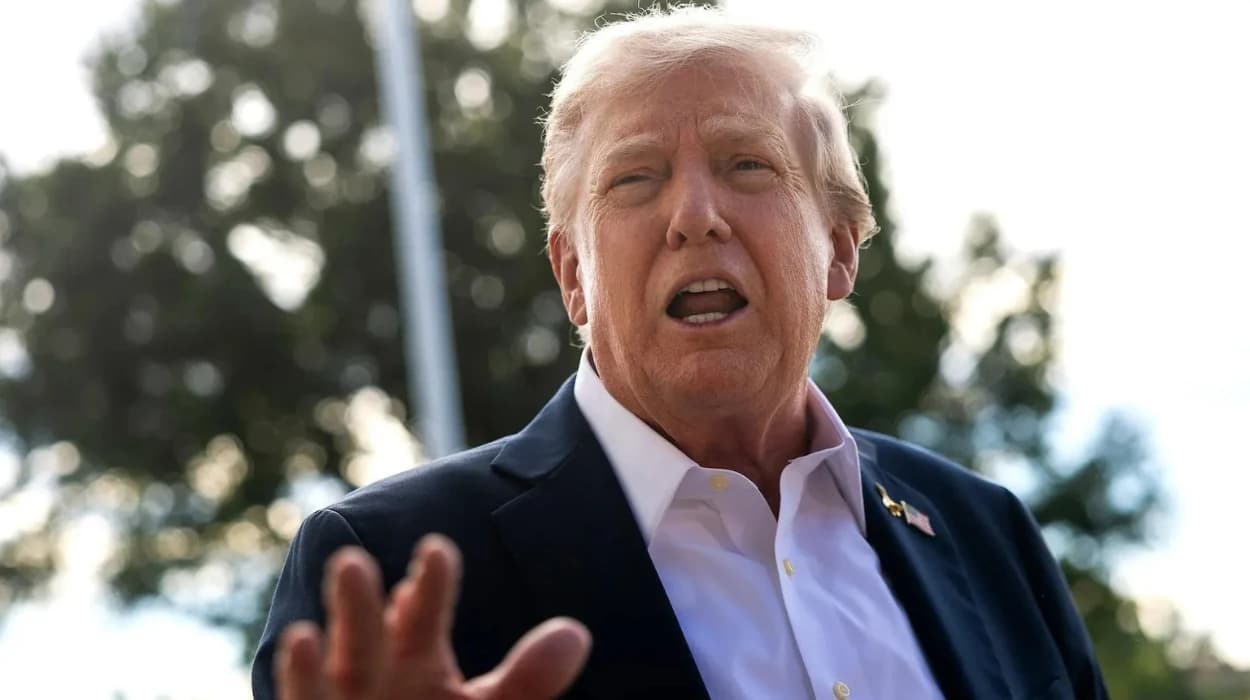Summary
- Pfizer secured a 3-year tariff grace period from the Trump administration.
- The deal requires US manufacturing investment by Pfizer.
- Pfizer agrees to cut US drug prices by up to 50%.
In an effort to enable Americans to pay for prescription drugs at government-negotiated reduced prices, Pfizer will provide a number of medications at an average 50% discount via a direct-to-consumer website named TrumpRx.
The agreement seems to address Pfizer's two main challenges. In addition to protecting the business from potential tariffs imposed by the administration's Section 232 investigation into whether the cost of medications poses a national security danger, it would prevent more harmful drug pricing measures.
Trump has unilaterally used trade policy to gain control over numerous businesses, and this is the most recent illustration of the transactional nature of obtaining tariff exemptions from him. Trump threatened to impose 100% tariffs on the pharmaceutical industry as recently as last week.
Following the announcement of the tariff relief, Pfizer's stock increased by as much as 5.6%, reaching a session high. As of Monday's close, the stock had lost 10% of its value this year, lagging behind the 13% increase in the S&P 500 Index.
There may be more discounts to come.
As authorities negotiate with large pharmaceutical companies, Commerce Secretary Howard Lutnick hinted that the administration was delaying the findings of its national security investigation of pharmaceutical imports that would lead to higher tariffs.
“While we’re negotiating with these companies we’re going to let them play out and finish these negotiations,”
Lutnick said.
Trump previously said that his administration would impose 100% duties on branded pharmaceuticals starting Wednesday unless a company was building US manufacturing plants. The latest comments from the president and his advisers indicate that the threat was a negotiating ploy to get companies to lower prices on their products.
“They’re all coming in over the next week. We’re making deals with all of them. And I said if we don’t make a deal, then we’re going to tariff them an extra, 5, 6, 7, 8%. Whatever the difference is, we’ll take that away,”
Trump said.
Pfizer said it will offer across-the-board reductions on US prices for Americans enrolled in the Medicaid insurance program, giving them “most favored nation” pricing on some of its medicines, Trump said. He has repeatedly pressured companies to bring their US prices in line with what foreign countries pay.
Bourla also declared a $70 billion investment in domestic manufacturing and research and development during the ensuing years. In response to pressure from Trump, the corporation was one of the few outliers among large pharmaceutical companies that hurried to emphasize the return of production plants to the United States.
Pfizer stated that the majority of its primary care medications would be available on TrumpRx, although it did not identify which of its medications would be made available there. Pfizer's best-selling medications include the Covid injection and pill, the pneumonia vaccination Prevnar, and the blood thinner Eliquis.
By using their personal connections with the president, big businesses and influential executives have been able to influence him to grant them better terms.
“While Democrats are threatening to shut down the government to subsidize health care for illegal aliens, President Trump is leveraging the power of the federal government to drastically cut drug prices for everyday Americans,”
White House spokesman Kush Desai said in a statement.
“Democrats talked the talk for decades about drug prices, but only President Trump is actually walking the walk.”
Companies must lower Medicaid costs, raise their drug pricing abroad, pledge to match international prices for future products to US rates, and provide reduced direct-to-consumer sales for some commonly used prescriptions, according to the most-favored-nation policy.
In July, Trump sent letters outlining his requests to 17 of the biggest pharmaceutical companies in the world, including Pfizer, Novo Nordisk A/S, and Eli Lilly & Co. The president promised to "deploy every tool in our arsenal" to penalize drug manufacturers that failed to comply, and the firms were given until September 29 to comply.
The idea of internationally linked drug prices has been criticized by the pharmaceutical industry as a danger to the United States' long-standing hegemony in biomedical research. Manufacturers of pharmaceuticals argue that it will discourage the development of innovative treatments and keep patients from receiving necessary medications. Instead, executives have asked the administration to focus on the middlemen that negotiate costs for employers in the pharmaceutical supply chain.
Which Pfizer drugs are slated for the TrumpRx discounts?
The medications from Pfizer that are eligible for discounts through the TrumpRx program will include most of Pfizer's major care medications and a small sample of specialty brand-name drugs. The average discount on these medications offered through TrumpRX will be approximately 50% with some discounts as high as 85%.
This price reduction will take effect shortly, as Pfizer operates a direct-to-consumer website for the TrumpRX program to allow Americans to buy these medications at a much lower cost.
In addition, Pfizer will also offer “most favored nation” pricing on drugs that are covered by Medicaid, which ensures U.S. prices will be aligned with the lowest price paid in other developed countries, as part of an action agreement with the Trump administration to reduce prescription drug costs.

